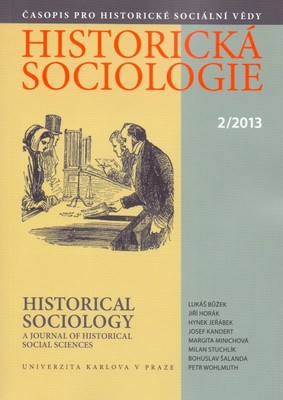Sekularizace, její kritika a aplikace na případ dělnického hnutí v českých zemích
Secularization, its Critique, and Application on Czech Labour Movement
Author(s): Jiří HorákSubject(s): History
Published by: Univerzita Karlova v Praze, Nakladatelství Karolinum
Keywords: dechristianization; working-class movement; conflict; secularization; socialist movement
Summary/Abstract: The Czech Republic is often said to be one of the most secular countries in Europe, or even in the world. For this, in accord with the secularization thesis, the modernization is often mentioned, where it was supposed that it automatically leads to the decline of religion in society. In my paper, I recapitulate the basic points of the secularization thesis and dissect its criticism which seems to be aimed at the idea, that secularization represents just an unintended effect of modernization. Based on this criticism, I deduce resources for analysis of the religious situation in the Czech Republic. Furthermore, I prove that Czech society is not so much atheist, but more dechristianised, and I focus on reasons of this dechristianization in political, social and class conflicts, which had, according to my opinion, a great impact on Czech church’s religionism. In this paper, I address the conflicts between socialist movement and the Catholic Church, which as a result had a substantial effect on the dechristianization of the czech working class.
Journal: Historická sociologie
- Issue Year: 2013
- Issue No: 2
- Page Range: 75-95
- Page Count: 21
- Language: Czech

